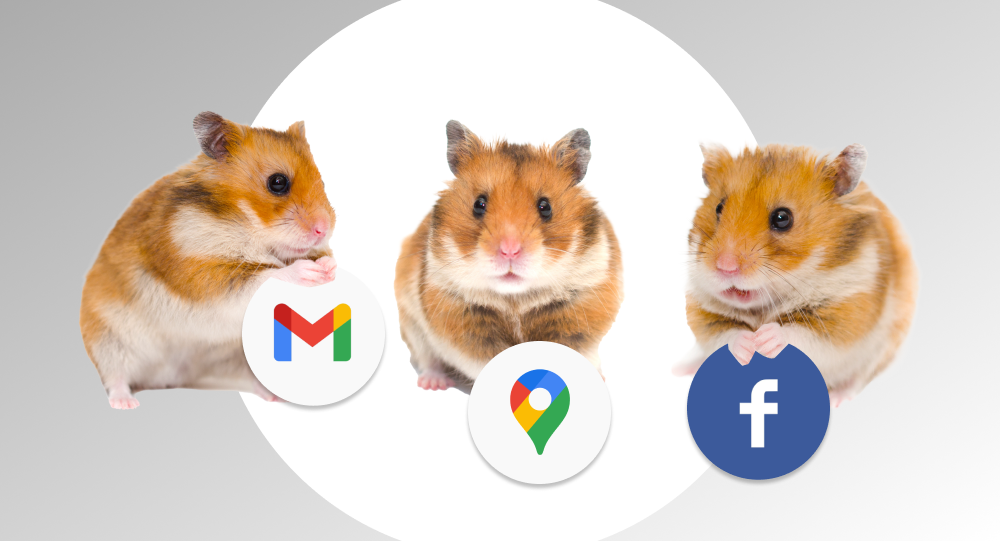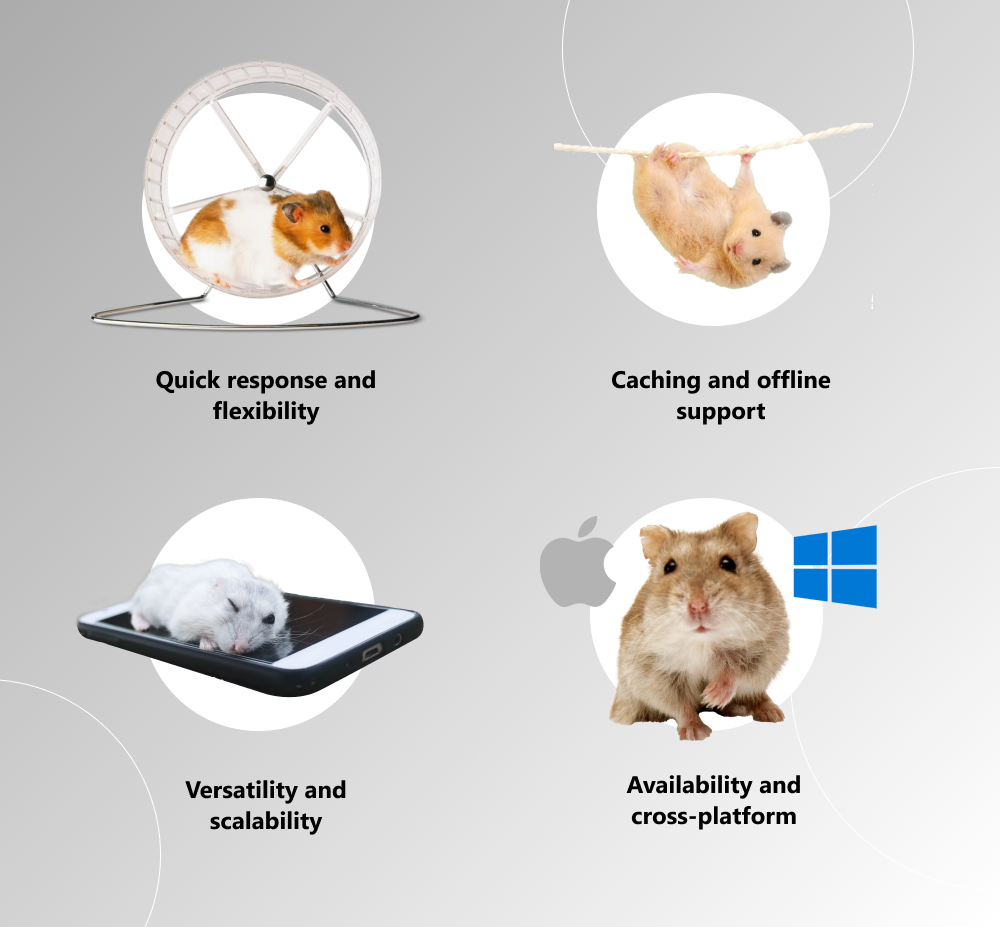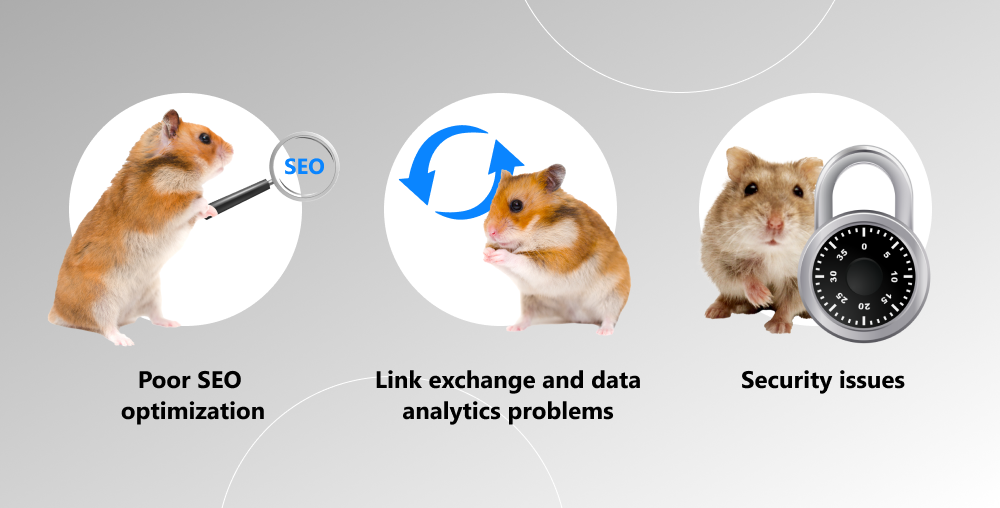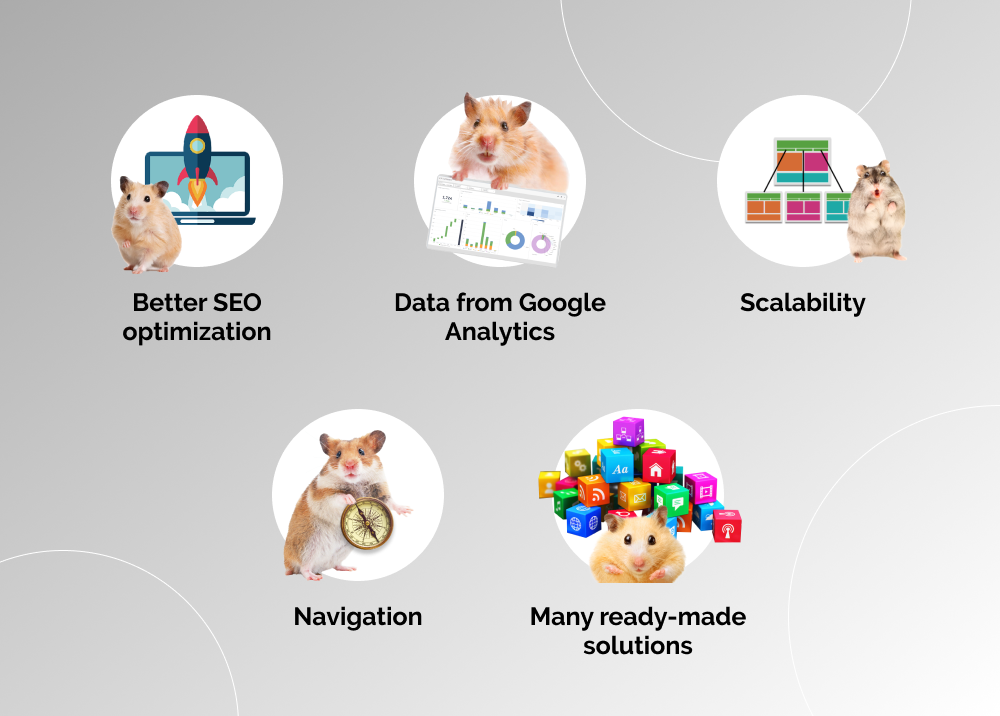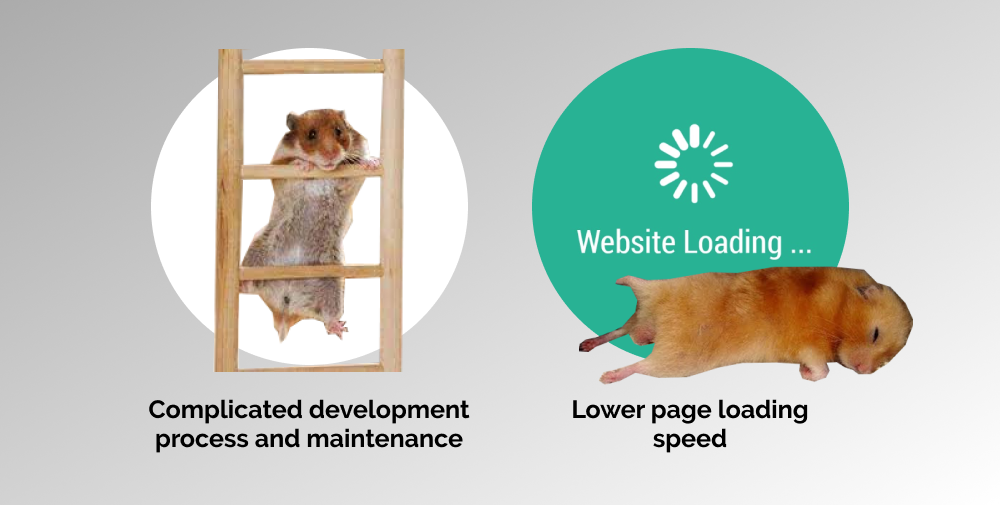Are you planning to develop a web application? Well, then you have to choose between two patterns: a single–page app (SPA) or a multi–page app (MPA). We know that you have a lot of questions in this regard. What is better, faster, cheaper, and more secure? Your website should be attractive, competitive, and free from the most common problems. Our article is aimed at exploring the key pros and cons of SPA vs MPA, as well as helping you understand which approach will meet your business goals.
written by:
Olga Shimko
Senior Software Developer, Qulix Systems
Are you planning to develop a web application? Well, then you have to choose between two patterns: a single–page app (SPA) or a multi–page app (MPA). We know that you have a lot of questions in this regard. What is better, faster, cheaper, and more secure? Your website should be attractive, competitive, and free from the most common problems. Our article is aimed at exploring the key pros and cons of SPA vs MPA, as well as helping you understand which approach will meet your business goals.
Contents
SPA at a Glance
A single–page application (SPA) is a website that does not require page reloading since all data is loaded by scripts. When a user takes any actions on the page, for example, clicks on any links, the script intercepts this event. It overrides the default action and instead communicates with the server by itself, and then displays the required data on the page.
When users click on a link or button, the SPA page does not reload. The browser shows a certain state of the page. When requested, only the displayed content changes instead of the page itself. By downloading only certain data rather than the entire page, SPA is refreshed instantly and loaded quickly.
As a rule, SPA is written in JavaScript, and the most commonly used frameworks include Vue, React, or Angular. You probably use Gmail, Google Maps or have a Facebook account. These services are representatives of SPAs.
Examples of Single–Page Applications
Gmail
Gmail is a spectacular example of single–page applications. Open your inbox and see for yourself. When the page loads, try going through different sections, such as reading incoming emails, checking for spam, and so on. You'll see that the page will not reload.
Google Maps
Google Maps is a single–page application, too. You can search for new places on the map and add new locations without reloading the page.
Facebook is the largest social network in the world that is used by 2.8 billion people. You can check and see for yourself that Facebook is a single–page application. Open the home page and go to the Groups or Friends sections. You will see that the page content will change, but the page itself will not reload, and the header will remain the same.
Advantages of Single–Page Apps
Quick response and flexibility
Complex hardware computation takes place on the back–end, and the web application functions load faster without the complete refreshing of web pages. All these features allow the page to load quickly, which is highly appreciated by users. If your website loads for more than 4 seconds, you may lose 79% of customers.
Caching and offline support
SPAs can effectively cache data in any local storage. The application sends only one response and then saves all the data. This feature allows your app to use this data and even work offline. If the user has a bad Internet connection or power cutoff, he/she will be able to continue using the application.
Versatility and scalability
If you want to build a mobile application in the future, you'll have a chance to simplify and cheapen the development process. This is explained by the fact that developers will be able to reuse the same code for your web app and mobile app.
Availability and cross–platform
SPAs will run on all devices with the web browser, which means that developers won't need to write code for different platforms and operating systems. This will save time and money for app development.
Disadvantages of Single–Page Applications
Poor SEO optimization
If search engine optimization is important to you, we have bad news for you. You won't be able to fill your website with a lot of keywords since all content is placed on one page. You won't be able to create unique links for different pages and configure the application for different query clusters. This will adversely affect SEO and make it difficult to optimize your website for marketing purposes. BrightEdge revealed that SEO can give you more than 1000% of traffic that organic social media.
For example, you watched a video on Facebook one day. Now, you'd like to find it to show it to your friends. You don't remember the name of this video; that's why you're trying to search for it on Google using keywords. The search engine will give you links to various YouTube videos but that might not be what you are looking for. The problem is that the content hasn't been optimized for the search engine.
There seems to be a way to make single–page applications SEO–friendly. This process is known as rendering. It lies in the fact that the search engine will index JavaScript files using Googlebot. After indexing, the bot will be able to find links in the content and send them for crawling. After that, your SPA will take its place on the search results page.
Link exchange and data analytics problems
Google Analytics provides data based on every new page load. Since we deal with the initial page load, it makes it difficult to collect website statistics. Based on this, it also becomes a challenging task to exchange links with other users. In most cases, you will only be able to add a link to the "home page" of a single–page web app.
However, you can use the deep linking method to lead the user to the required parts of your content. What does this mean? The page address bar contains all the information that you need to get to a particular section of the website, rather than the home page.
Security issues
Unlike MPA, SPA is more vulnerable to cross–site scripting attacks, or XSS. This means that cybercriminals can put malicious scripts into your web app and steal sensitive data. Experienced developers can easily solve this problem. For example, they can use the Content–Security–Policy HTTP response header. In addition, some frameworks have built–in XSS protection (e.g., React).
So, the topic of our article is single–page application vs multi–page application. We've looked at SPAs and their pros and cons. Now, it's time to explore apps with multiple pages. Let's go!
SPA vs Multi–Page Application: What Is MPA?
A multi–page application (MPA) is a traditional web app. When the visitor interacts with the website by clicking on any buttons or following links, new HTTP pages are loaded. MPAs usually contain a lot of information, sections, links, etc. As a result, they are much slower than SPAs. Single–page web apps are typically written in HTML and CSS, but some developers use jQuery and JavaScript to improve their loading speed. Do you visit online stores, blogs, and forums? They are common representatives of multiple–page web applications.
Examples of Multi–Page Applications
Amazon
Amazon is one of the biggest US online marketplaces where you can buy various goods and services. There you will find more than 50 different product categories, which, in turn, give you access to a great number of pages with products and their descriptions. As you navigate the website, you will notice that the page URL changes every time.
IMDb
IMDb is the world's largest database of movies, actors, TV series, screenwriters, directors, and more. As of January 2021, it contains more than 6.5 million films and TV series, as well as 10.4 million people associated with cinema. If you search for information on this website, you'll note that the browser reloads every time you click on links or move between sections.
Benefits of Multi–Page Apps
Better SEO optimization
In contrast to single–page web apps, MPAs are an ideal option for search engine optimization. Crawlers easily index these applications. For example, you can add meta tags for each page. Thanks to good SEO, your website will be highly ranked on the SERP. This will allow users to quickly find your app, buy a product or order a service, as well as become your regular customer or subscriber.
Data from Google Analytics
Google Analytics allows you to analyze user behavior on your website. Thanks to this data, you'll find out what visitors were looking for on your website, what they did, which devices they were using, as well as analyze download speed and receive other important information. All of this will help you improve the performance of your app, optimize the content and navigation, increase sales and attract new customers. The SPA's capabilities in this regard are limited: you'll just get information about who visits your website and how long they have been there.
Scalability
Thanks to the MPA architecture, you can create an unlimited number of pages and publish as much content as you want. If you run an online store or marketplace with numerous products and services and plan to add more descriptions and characteristics, developing MPA will be a perfect choice.
Navigation
Multi–page apps offer users a better navigation experience. For example, each page has its own URL that can be easily saved, bookmarked, sent, etc. To allow users of single–page applications to do the same, developers use APIs.
Many ready–made solutions
Since multi–page applications have been in use longer than single–page applications, they have a wider tech stack. There are many ready–made solutions for MPAs, such as OpenCart and WordPress.
Drawbacks of Multi–Page Applications
Complicated development process and maintenance
In order to create a traditional web app, developers need to spend more time and effort. This is due to the fact that they need to write front–end and back–end code separately using different tools. This, in turn, increases development costs. It's also problematic to maintain and update large multi–page websites because developers need to secure every page.
Lower page loading speed
MPA servers reload the content when the user interacts with the application. How does this happen? Every time you perform an action on the page, the application sends a request to the server to receive a new code. This takes time, which adversely affects the speed and performance of your website.
SPA vs MPA: What Is Your Choice?
So, we've told you about single–page and multi–page applications, their differences, strengths, and weaknesses. SPAs are much faster than MPAs and offer an excellent user experience, allowing visitors to smoothly navigate between different pages. However, they are not SEO–friendly and dependent on JavaScript. They will be perfect for SaaS platforms and social networks.
Multi–page apps are slower and less flexible, but they're better optimized for search engine crawlers and scalable. If you want to launch a marketplace, online store, forum, or information website, MPA will become an ideal option for you.
If you still have any questions about SPA and MPA or need more details on web apps, don't hesitate to ask our experts or visit our website. We're always ready to help you!




